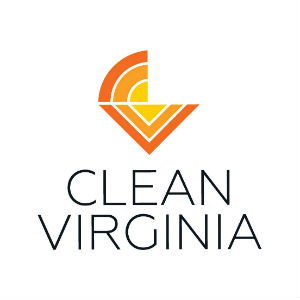
The report proposes how legislators and Virginia government agencies can eliminate this so-called “Dominion Tax” and put hundreds of dollars back in the pockets of Virginia consumers and businesses through a reform agenda to confront Dominion’s outsized influence in Richmond.
“Dominion was given a monopoly to provide a public service, not transfer the wealth of Virginians to its shareholders,” said Clean Virginia Executive Director Brennan Gilmore. “Our detailed, empirical analysis of the practices of Dominion and APCO reveals hundreds of dollars of excess costs borne by Virginia consumers and businesses so that these massive corporations can earn excess profits and expand their power and influence. We hope this report educates policymakers and the public on the desperate need for a reform agenda in Virginia that returns money to people’s pockets and confronts the legalized corruption of these utility monopolies.”
The report finds that Dominion and APCO are shifting more than $700 million in excess profits and costs onto ratepayers, at an average of about $254 annually per Dominion ratepayer and $89 per APCO ratepayer, including households, businesses, and industry. This analysis breaks down how the passage of two bills — the 2015 “Rate Freeze” law, and the 2018 Grid Transformation and Security Act — have allowed Dominion to keep hundreds of millions of dollars in excess earnings each year, a sum that historically would have been largely refunded to ratepayers. These over-earnings have instead been funneled into additional profit-generating enterprises for the utilities and their shareholders with little to no demonstrated benefit to the ratepayer.
The report analyzes such excess costs as: excess profits beyond the normal, reasonable rate of return approved by the State Corporation Commission (SCC); advertising costs; excessive executive compensation; lobbying; campaign contributions; the net cost of the Atlantic Coast Pipeline; and increased energy costs due to a lack of energy efficiency efforts, among others. It finds that, on average, Dominion ratepayers are spending $254.20 more per year and APCO ratepayers $89.20 per year in excess costs.
“Those of us in public service have a responsibility to make sure this money gets back to Virginia residents and businesses, instead of lining the pockets of wealthy corporations and executives,” said Clean Virginia “Champion” Del. Sam Rasoul. “In the 2019 legislative session, we will fight to repeal this ‘Dominion Tax’ and change the laws that too often allow utility monopolies to write their own rules — to their own financial advantage — in Richmond.”
The report recommends significant, specific actions that legislators can take to return these excess costs to Virginia ratepayers, including:
- Returning regular rate case review by the SCC to its traditional schedule of every two years
- Reforming the way to calculate utilities’ rates of return to prioritize consumers’ interests and keep costs low
- Ending undue utility monopoly influence in Richmond, from capping utility lobbying spending and banning utility campaign contributions to refunding ratepayers directly to compensate them for excessive non-essential cost-shifting by the utilities.
Read the full report here.










